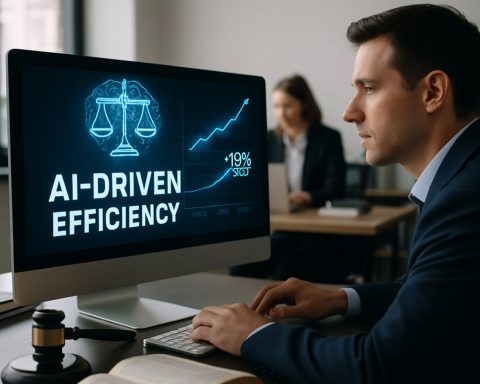- Porsche initiates an eco-friendly revolution by recycling old EV batteries into “black mass” to reclaim essential materials.
- The process extracts nickel, cobalt, manganese, and lithium to enhance battery production while maintaining luxury standards.
- Porsche has produced 65 tonnes of recycled materials, promising to redefine EV battery performance and sustainability.
- The initiative aligns with upcoming EU regulations requiring increased recycled content in batteries by 2031.
- Porsche aims to incorporate recycled elements into new battery cells, securing its position as a sustainability leader.
- This strategy mitigates risks from raw material market fluctuations and supports Porsche’s commitment to responsible luxury.
Imagine the roar of a Porsche engine, a symbol of automotive excellence, now driven by recycled batteries. This is not mere fantasy but a visionary step into the future. Porsche has embarked on an ambitious journey, breathing new life into old electronic vehicle (EV) batteries. The company’s groundbreaking initiative seeks to transform how the world views and utilizes high-voltage EV batteries, spotlighting an eco-friendly revolution in the automotive industry.
High above the pristine assembly lines of Porsche’s production halls, an intricate ballet is unfolding. Here, batteries that once powered cutting-edge electric vehicles are fragmented through a mechanical shredding process, metamorphosing into a mysterious granule termed “black mass.” Through this transformative process, the luxury carmaker channels the essence of spent batteries into a new lease of life, reclaiming essential elements such as nickel, cobalt, manganese, and lithium. This metamorphosis bridges the gap between waste and resource, tech and nature.
To date, Porsche’s eco-warriors have produced an astonishing 65 tonnes of this gritty black gold, sourced from the batteries of development vehicles. As these raw materials emerge, so does a profound transformation—one that holds the promise to redefine performance standards for EV batteries. Once extracted, these vital elements—presented with a purity that meets Porsche’s unwavering standards—are reintegrated into production, securing not just the future of Porsche’s vehicles, but perhaps, the very concept of sustainable luxury.
Integral to this endeavor is the assurance of quality. With the precision that mirrors the craftsmanship of their sports cars, Porsche ensures that the material consistency and purity not only match but set a new benchmark for EV components. As these materials are reinvigorated into new battery cells, the true potential of circularity becomes evident—an approach that Porsche argues fortifies its sustainability strategy’s very core pillar.
Moreover, the culmination of this initiative paints a bold future: Porsche aims to forge new battery cells partly crafted from recycled content, subjecting them to real-world trials in the next generation of their electrified fleet. This forward-thinking approach is not merely visionary but also strategic, as it positions Porsche ahead of impending European Union battery regulations poised to demand increased recycled content starting in 2031.
Thus, Porsche not only champions recycling; it positions itself as a leader in the transformation of the automotive industry towards a more sustainable paradigm. By committing to responsibly harnessing resources today, Porsche is laying the groundwork to continue its legacy of luxury in an environmentally conscious tomorrow. As geopolitical tides and environmental pressures foreshadow uncertainties in raw material markets, Porsche’s proactive tactics provide an anticipation—a hedge—against such volatilities.
Through this transformative pilot project, Porsche eloquently demonstrates that the heartbeat of sustainability can reverberate through luxury, crafting a future where automotive excellence and environmental stewardship accelerate hand in hand.
Porsche’s Pioneering Battery Recycling: A Sustainable Shift in Luxury Automotive Industry
New Frontiers in Battery Recycling
Porsche’s innovative approach to recycling used electric vehicle (EV) batteries is more than just an eco-friendly initiative; it represents a fundamental shift in how the automotive industry can embrace sustainability without compromising on luxury or performance. This invigorating vision transcends just a mechanical process to become a vital part of how future automotive excellence will be defined.
How the Process Works
1. Collection and Shredding: Used batteries from development vehicles are collected and undergo a shredding process to produce “black mass.”
2. Element Extraction: Essential elements like nickel, cobalt, manganese, and lithium are extracted. These have high economic value and are critical for the production of new batteries.
3. Purification and Reintegration: The extracted materials are purified to meet Porsche’s high standards and then reintegrated into the creation of new battery cells.
The Bigger Picture: Market Trends & Industry Insights
– Meeting Regulations: With the EU set to impose stricter laws on recycled content in batteries by 2031, Porsche’s initiative not only meets future compliance but also establishes the brand as a leader in sustainable luxury.
– Environmental Impact: This method reduces dependency on raw material mining, significantly decreasing the environmental footprint associated with battery production.
– Economic Advantages: As raw material scarcity and prices fluctuate due to geopolitical tensions, Porsche’s recycled battery strategy provides financial stability and perennially meets production needs.
Real-World Use Cases
– Sustainable Luxury Vehicles: By incorporating recycled materials, Porsche can maintain its high-performance standards in its luxury vehicle lineup while improving sustainability.
– Broad Applicability: This approach can be adapted by other automakers looking to minimize environmental impacts and align with emerging global standards for battery production.
Quick Tips for Other Manufacturers
1. Start Early Pilot Programs: Implement similar pilot programs to test and refine processes before regulatory changes take effect.
2. Invest in R&D: Focus on advancing extraction and purification techniques to maximize material reclaim without quality loss.
3. Collaborate with Regulators: Engage with environmental bodies to stay ahead and even influence policy that encourages sustainable practices.
4. Consumer Education: Build awareness around the benefits of recycled materials to enhance brand loyalty and attract eco-conscious consumers.
Pros & Cons Overview
Pros:
– Enhances sustainability and reduces reliance on raw materials.
– Prepares for upcoming regulatory changes.
– Aligns luxury with eco-friendly initiatives, appealing to a broader customer base.
Cons:
– Initial investment in technology and processes could be high.
– Recycled materials must meet purity and performance standards consistently.
Conclusion: Actionable Recommendations
Porsche’s innovative battery recycling program sets a benchmark for the automotive industry. Manufacturers looking to adopt similar practices should focus on early implementation, robust R&D, and regulatory collaboration. By doing so, they can ensure sustainability, compliance, and ongoing consumer trust.
For more insights on sustainable automotive advancements, visit Porsche.










